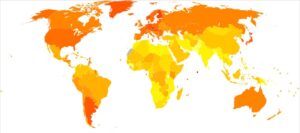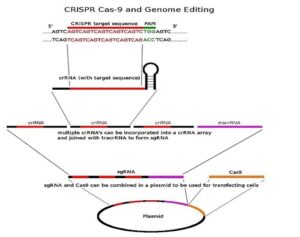
Figure 1: Some of the major detrimental effects of sleep deprivation are listed here, including an impaired immune system and other symptoms that are amplified when the immune system is under duress
Source: Wikimedia Commons
In today’s fast-paced society, sleep is often sacrificed when other responsibilities pile up. The Center for Disease Control (CDC) recommends that adults sleep at least seven hours a night (CDC, 2020). However, according to a survey conducted by the CDC in conjunction with various state health departments, one in three adults do not sleep the recommended amount, in particular, unemployed and unmarried participants slept less than their employed and married counterparts (CDC, 2016). Other researchers have confirmed the long-term detrimental effects sleep deprivation can have on individual health, specifically on the immune system. With COVID-19 still presenting significant health challenges, understanding the role of sleep in immune system function is critical.
The relationship between sleep and immunity actually began to be explored in 350 B. C. by Aristotle. He published a book, On Sleep and Sleeplessness, specifically discussing a relationship between characteristics observed in a feverish patient and those that he believed caused sleepiness. While this wasn’t exactly a scientific investigation, Aristotle showed the importance of understanding the complex relationship between sleep and health (Luciana et al., 2019).
Now, researchers know that hormones and other chemicals released by the brain can act in ways to either suppress or activate the immune system based on the situation. The process also works in the reverse direction, in which the immune response can affect the brain. This happens when illness, and the resulting immune response, affects the central nervous system (CNS) in a way that causes the brain to conserve energy, leading to fatigue and drowsiness. Additionally, there are proteins in the immune system that can induce sleep more directly, suggesting a very close relationship between the immune response and sleep regulation. For example, cytokines are produced by macrophages (cells that are key players in the innate immune response), and those cytokines actually assist in “[promoting] NREM sleep amount and intensity” (Luciana et al., 2019).
With overwhelming evidence that the immune system and sleep regulation are connected, it is clear that maintaining both is essential for a healthy lifestyle. In the midst of a pandemic, ensuring robust immune health is more important than ever. And getting a few extra hours of sleep won’t hurt.
References
Besedovsky, L., Lange, T., & Haack, M. (2019). The Sleep-Immune Crosstalk in Health and Disease. Physiological reviews, 99(3), 1325–1380. Retrieved October 06, 2020 from https://doi.org/10.1152/physrev.00010.2018
Center for Disease Control and Prevention. (2020, March 20). Are You Getting Enough Sleep? Sleep and Sleep Disorders. Retrieved October 07, 2020 from https://www.cdc.gov/sleep/features/getting-enough-sleep.html
Centers for Disease Control and Prevention. (2016, February 16). 1 in 3 adults don’t get enough sleep. CDC Newsroom. Retrieved October 07, 2020 from https://www.cdc.gov/media/releases/2016/p0215-enough-sleep.html
Related Posts
The Geography of Disease: a Bayesian Approach to Epidemiology
Figure 1: A map showing relative rates of pancreatic cancer...
Read MoreBeginning stages of CRISPR detection in athletes
Figure 1: This image outlines CRISPR and its delivery mechanism. It...
Read MoreUV-Vis Spectroscopy: A Step in the Light Direction
Executive Board Advisor: Nishi Jain Co-Authors: Daniela Galvez-Cepeda, Katherine Faulkner,...
Read MoreVishi Agrawal



